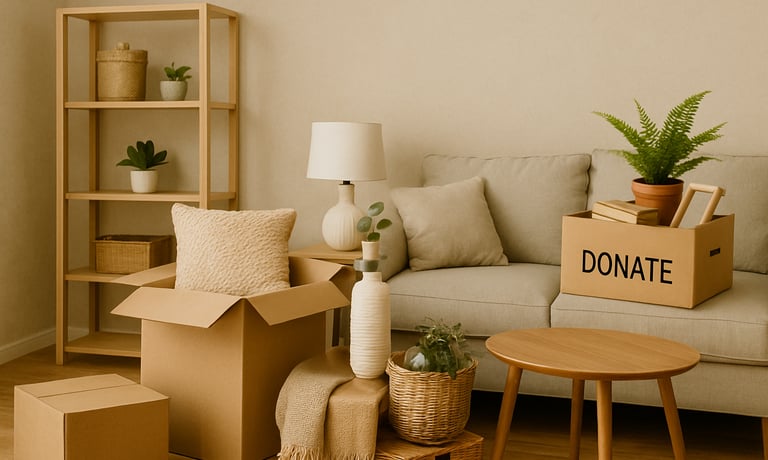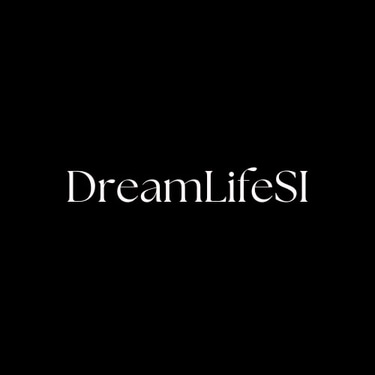Decluttering Your Space for a Clearer Mind and Life
LIFESTYLE
By Sia Imime
4/16/20253 min read


Disclosure: This article contains affiliate links, meaning that if you purchase through them, I may earn a small commission at no extra cost to you. I only recommend products that I believe will add value to your personal growth journey.
Clutter is more than just a visual distraction—it has profound psychological and energetic consequences. Research shows that a disorganized environment can lead to stress, anxiety, and reduced productivity. But there's more: emerging science in environmental psychology and energy dynamics reveals that the spaces we inhabit shape not only how we think, but how we feel, move, and even relate to others.
In this article, we’ll explore how clutter affects your brain and body, uncover lesser-known studies about environmental energy, and guide you through practical steps to reclaim your space—and your peace of mind. Plus, we’ll recommend top-rated tools and organizers to help you take immediate action.
The Psychology of Clutter: Why Mess Affects Your Mind
A 2011 study by Princeton University Neuroscience Institute found that physical clutter in your surroundings competes for your attention, resulting in decreased performance and increased stress. The visual cortex becomes overwhelmed by irrelevant stimuli, making it harder to focus and process information.
Key Effects of Clutter on Mental Health:
Increased cortisol levels (the stress hormone)
Reduced working memory and decision-making ability
Disrupted sleep cycles
Emotional fatigue and irritability
A UCLA study also showed that women who described their homes as "cluttered" experienced higher levels of depression and fatigue.
Energy Science and Spatial Flow: Ancient Wisdom Meets Modern Science
From feng shui to Vastu Shastra, ancient cultures have long believed that clutter disrupts the natural flow of energy (chi or prana) in our homes and bodies. But now, modern science is starting to catch up.
Dr. William Tiller, former Stanford professor and energy science researcher, found that physical environments could retain emotional and energetic imprints, affecting people’s moods and behavior. The more cluttered or disorganized a space is, the more stagnant and disruptive the energy becomes.
Unfamiliar but Fascinating Insight:
Electromagnetic pollution from cluttered spaces filled with unused electronics can disrupt your natural biorhythms.
Shape and symmetry: Studies show symmetrical spaces help synchronize the brain's hemispheres, supporting better emotional regulation.
Sound clutter (background noise from TVs, machines, or overlapping devices) can lead to sensory overload and disrupt meditative or mindful states.
Decluttering = Mental Clarity, Creativity & Confidence
When you clear out your space, you’re not just cleaning a room—you’re making space for possibility, creativity, and decision-making power. Neuroscientists have found that minimal environments enhance the brain’s ability to make decisions quickly and confidently.
A study from the University of Connecticut even found that people in tidy spaces were more likely to make healthy choices and feel a stronger sense of control over their lives.
Bonus Tip: Many therapists now include “environmental interventions” in mental health plans, asking clients to declutter as part of anxiety or depression treatment.
Practical Tools to Declutter Effectively
1. Decluttering Method: Try the “One Touch Rule”—handle an item once, and decide: keep, toss, donate, or relocate.
2. Start Small: Focus on high-traffic or high-impact zones first: your desk, your bed area, or your kitchen counter.
3. Use the 80/20 Rule: You use 20% of your stuff 80% of the time. Identify the essentials.
Recommended Tools
Space-Saving Drawer Organizers – Keep your essentials accessible without visual clutter. Adjustable and aesthetic.
Label Maker – A small tool that creates huge clarity. Label shelves, bins, cables—anything to reduce mental load.
Cord Management Box – Tame the tech jungle. This tool reduces electromagnetic clutter and looks clean.
Minimalist Floating Shelves – Display with intention. Keep surfaces clear and items elevated.
Donation Bags with Labels – Make parting with unused items easier and more purposeful.
Energetic Clearing Techniques
Once you’ve physically decluttered, take it a step further:
Smudging with sage or palo santo to reset the space’s energy
Solfeggio Frequencies (like 528Hz) to harmonize your environment
Open windows and allow fresh air to circulate new life into your space
Final Thoughts: Decluttering as a Lifestyle, Not a One-Time Project
Decluttering isn’t just a cleaning task—it’s a sacred practice of self-respect, self-awareness, and energetic renewal. The more you engage with your environment intentionally, the more aligned and clear-headed you become.
So next time your mind feels foggy or overwhelmed, look around. Your space might be trying to tell you something.
Let the clearing begin.
Tags: decluttering tips, clutter and mental health, energy flow, feng shui, minimalist lifestyle, home organization, psychological effects of clutter, environmental psychology, tidy space clear mind, energetic clearing, stress relief at home, space healing, productivity and clutter, mindful living, organize your life
